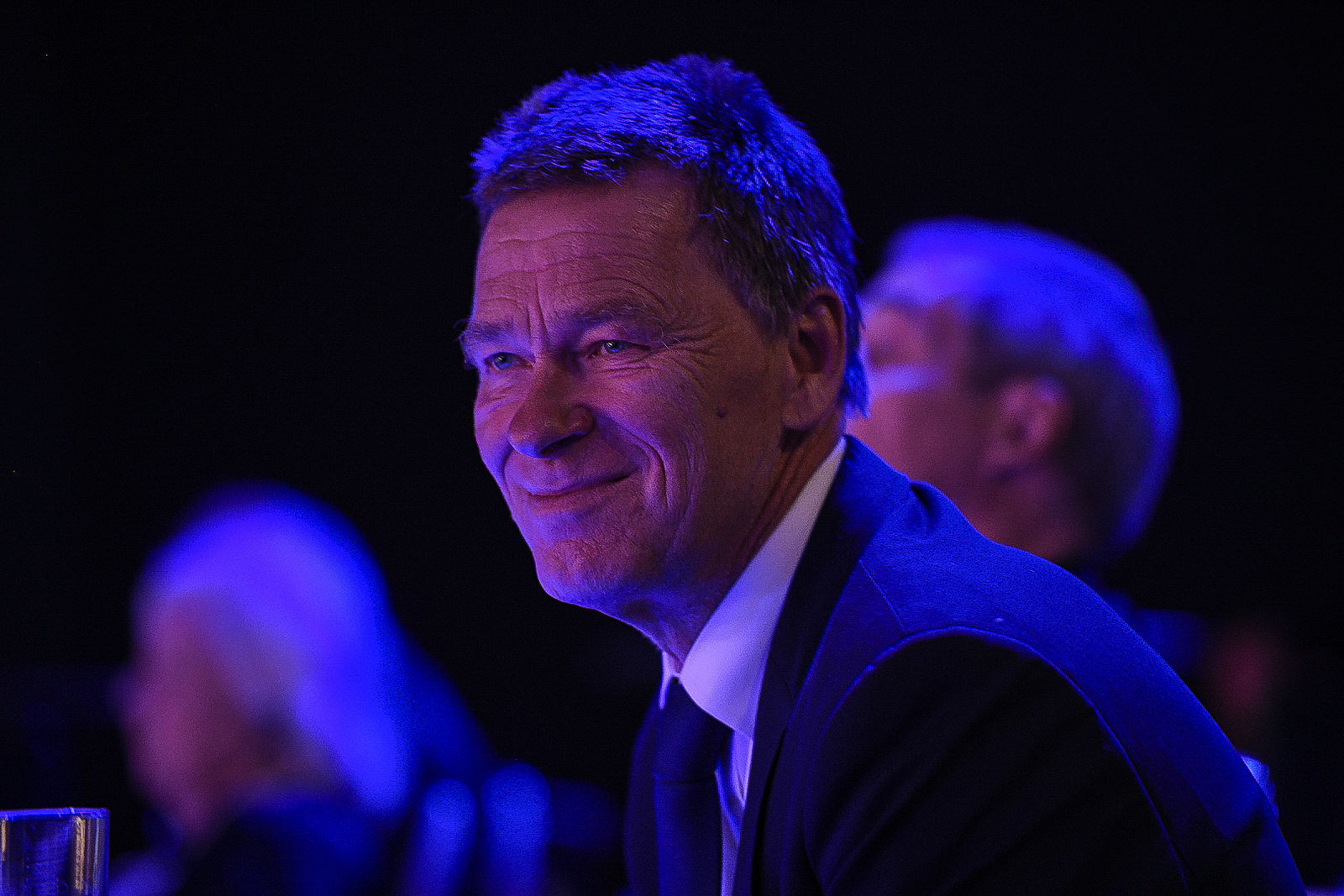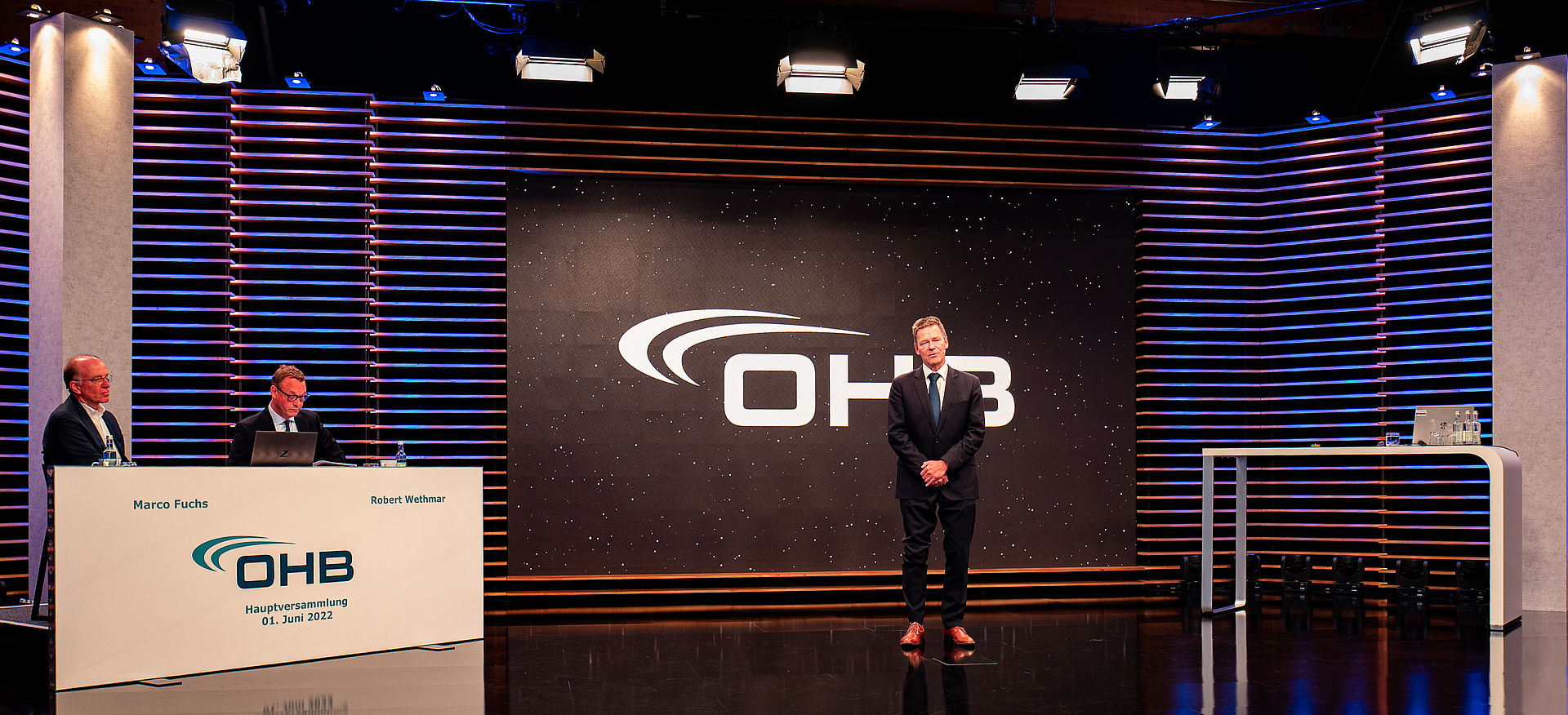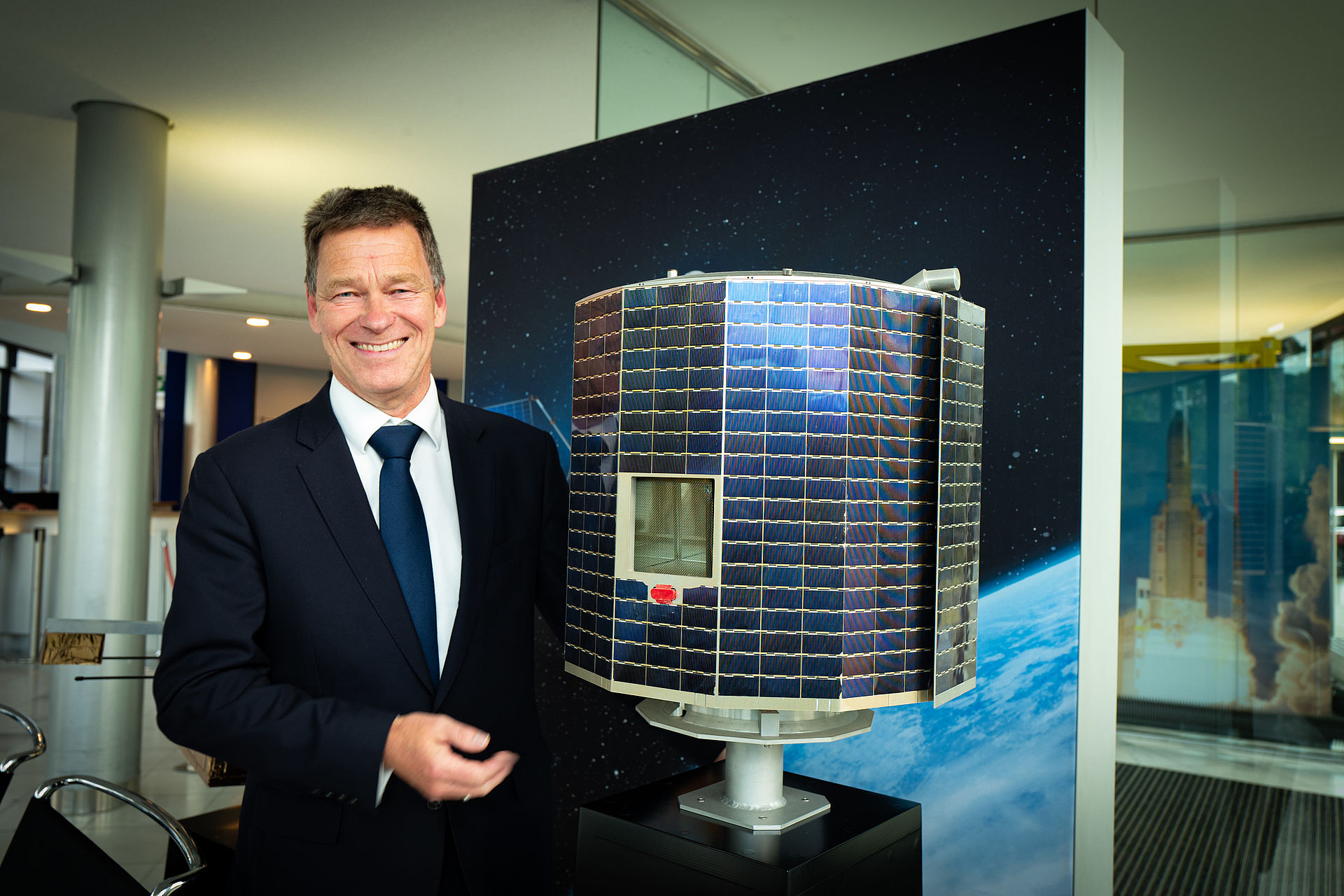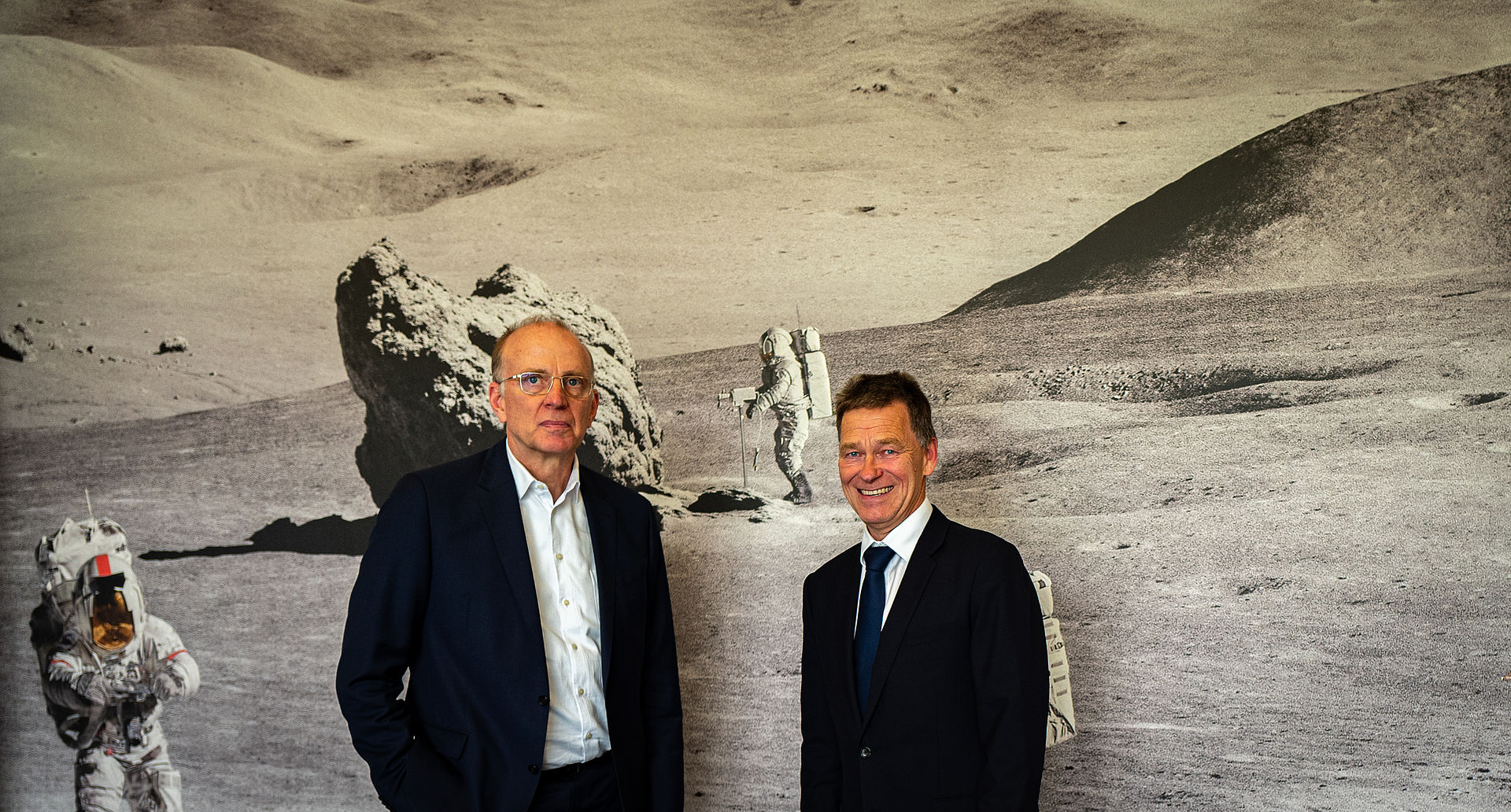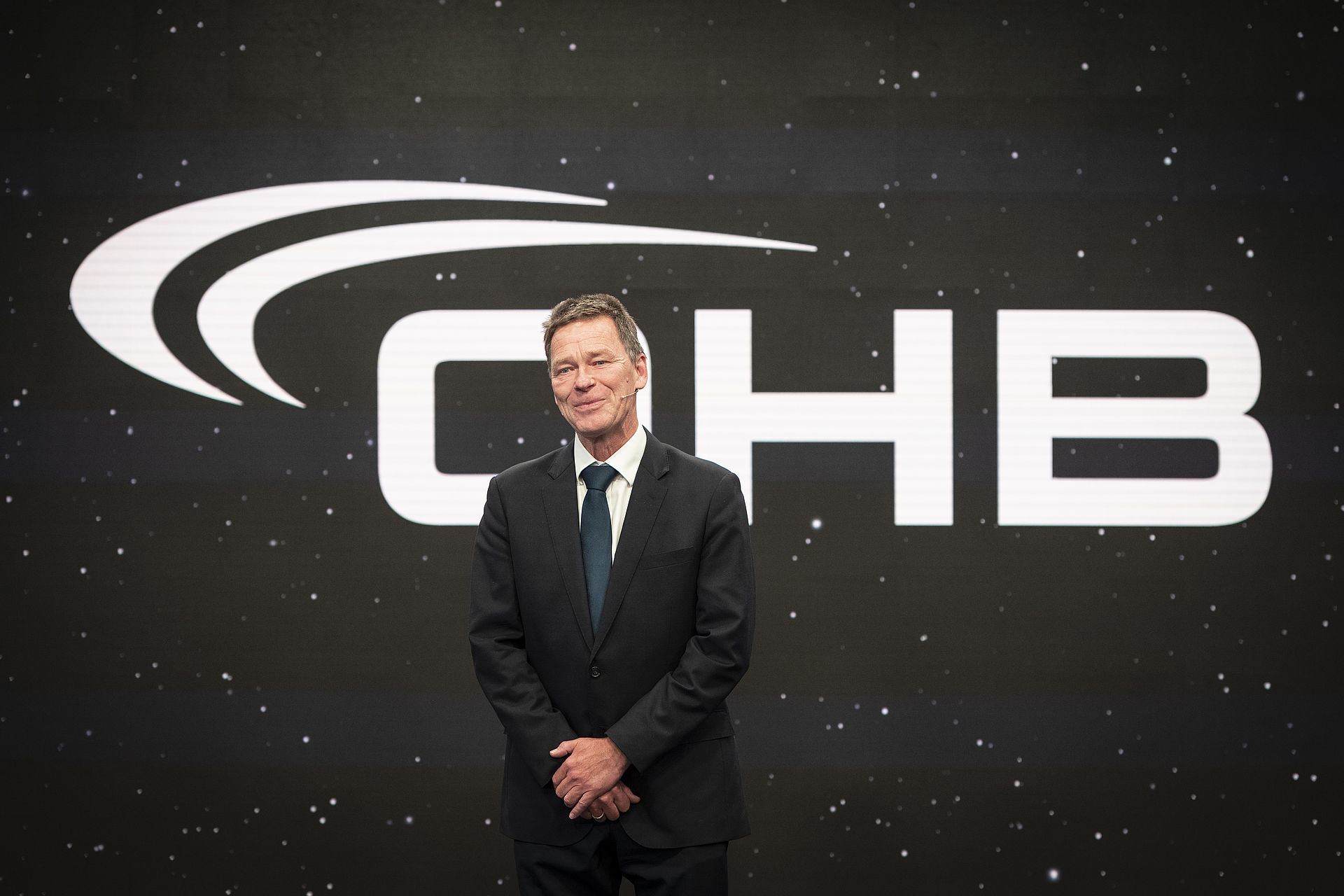He is one of the most outstanding space experts and now a member of the OHB SE Supervisory Board: Hans Königsmann, born in Berlin in 1963. He studied aerospace engineering at the TU Berlin and holds a PhD from the University of Bremen. As a young space engineer, he worked at the Center of Applied Space Technology and Microgravity (ZARM) and was responsible for the technical programme management of the BremSat small satellite project, which was realised in close cooperation with OHB.The satellite was launched into space on the Space Shuttle in 1994. After completing the project, Königsmann went to the USA. From 2002 to 2021, as Vice President of Mission Assurance at SpaceX, he was responsible for the safety of rocket launches and missions. In addition, he played a major role in the development of the Falcon 1, Falcon 9 and Dragon capsule rockets and the Starlink constellation in various leading positions. In 2014, NASA awarded Hans Königsmann the "Distinguished Public Service Medal", the highest recognition of the American space agency for non-governmental persons.
Mr Königsmann - "The Little Prince" by the pilot Antoine de Saint-Exupéry or a novel by Jules Vernes - what literature would you pack if you had the opportunity to fly to the moon or perhaps even to Mars?
Faust by Goethe, says Hans Königsmann promptly with a swift glance at his bookshelf.
Why Goethe's Faust?
Well, in terms of content and also the number of letters, Faust is the densest book I have in my bookcase - at least at the moment.
When did you first read this masterpiece?
I don't know exactly, probably at school. The book fascinates me, but I never manage to read it again in one go. But of course, I read many other books, much technical reading. Not necessarily Jules Verne. I'd rather read Jacques Cousteau, or Shackleton, whose book would be good to take to the moon.
Shackleton on the moon?
Yes, in case something goes wrong. You'd have the right spirit right away and could read up on how to hold out and rescue the crew. Actually, I would probably take my whole library with me.
Well, the suitcase must be big . . .
. . . digital, of course. I only read everything digitally.
Okay, it's a long way to Mars. How long would it take you to get there with all your books?
If you take the most efficient transfer to Mars, it's six months. Then, you have to stay for about a year and a half, and then it's six months back again. So it does take a bit of time.
And what music would you listen to on such a long flight or during liftoff?
Well, I wouldn't listen to music during the launch. I don't listen to music when I'm running either. During liftoff, I definitely want to hear what's going on. Imagine if I could fly to Mars and hear a piece of music during the launch - how absurd that would be.
Why should we go to Mars at all? Our Earth is so awesome and marvelous.
Well, I have a nice piece I can show you – just a moment.
Hans Königsmann gets up, goes to the shelf and picks up a fossil shark tooth, about the size of a hand.
So, this fish lived - I don't know how many millions of years ago. It's a megalodon, a prehistoric shark, probably the most giant shark that ever lived in our ocean. Today it no longer exists. It's extinct, just like the dinosaurs and many other species. My point is that if the dinosaurs could have travelled interplanetary, they would have gone to Mars and might still be around.
If the dinosaurs could have travelled interplanetary, they would have gone to Mars and might still be around.
So we have to take some precautions?
Yes, basically, it's about a backup plan if something happens here on Earth. Mars is certainly not yet the ideal place for us humans, but at the moment, it's the only planet we can reach. It's not the most urgent thing now, but we have to think about it in the long term, even if we can't say today what will become of it one day. Besides, we have a certain spirit of discovery in us. Just as we once set out into the unknown with ships across the ocean to discover unfamilar continents, today, we are setting out into space. Beyond all that spaceflight has to offer, the ultimate in spaceflight is setting out for foreign planets.
For now, though, you stay on Earth . . .
. . . yes, exactly.
You have been elected to the OHB Supervisory Board. Congratulations. What are your first tasks?
First of all, I would like to get to know OHB better. I know Marco Fuchs and the board of directors. I also look forward to meeting the staff to get an even deeper impression. Of course, my first priority is to work well with the Executive Board and make sure with the Supervisory Board that everything is going right. Beyond that, I'll be happy to share some experience or advice wherever it's may needed. If that's not required, that's okay too.
I'll be happy to share some experience or advice wherever it's may needed. If that's not required, that's okay too.
But more generally, after 20 years in America, I would like to get a better grasp of the situation in Europe, i.e. how competitive Europe is in international spaceflight and what it needs to be fit for the future. Other countries sometimes have a different approach and react much more quickly to proposals from science or space companies. In Europe, a Five-Year Plan is adopted, and there is little room for rapid innovation.
Back to OHB. In the first few years, the company was one of the few players on the market. Still, today - in the global boom of the space industry - the competition is greater and more and more start-ups are entering the market. So how does the company remain fit for the future?
When we at ZARM developed the BremSat satellite with OHB - a highly complex instrument that delivered outstanding scientific results - the company was still small, fast in development and driven by an enormous spirit of optimism. You have to keep this start-up mentality, with which you can also operate in a large, established company.
Flexibility is important - and communication.
So, flexibility is important - and communication. Keep motivating the staff. Communicate why and for what a demanding project is good and important. I see a lot of potential here and people who can keep the company on a successful path. But as I said, I need to get a more overall impression first.
And how would you describe your relation to CEO Marco Fuchs?
I've known him for quite a long time. Contact has been more intensive since OHB started flying more with SpaceX. His father, Manfred Fuchs, built up the company with extraordinary visionary strength. A fine legacy, but not an easy one. Over the years, I have seen Marco step out of his father's shadow. He has developed his own style and his own ideas, and he is successful with them. I am happy for him and OHB. What I personally value about him is that he is very open minded for new ideas and and approaches.
What do you recommend to young people who are looking for a job in the aerospace industry?
I don't know if you should necessarily study aerospace engineering today. But, if you choose it, you end up being a systems person, and you know a little bit about everything.
What skills do you need instead?
I think it would be better if we had more young people with a deep knowledge. Thermodynamics is essential, or to consider propulsion systems basically physics, mechanics, also good software or electronic skills are ver much need. But I tell everyone to do what they really love to do. I enjoyed the programmes I wrote. I was fascinated by recreating the environment for the satellite on the computer, in other words, simulating complex movements and processes. This simulation software to test the satellite on the ground and to figure out whether it works in space or not, the so-called hardware in the loop test, is very crucial. The same software is still running on my computer today, of course in a very modified form.
This seems to be a nice proof that you can succeed if you follow your intuition.
Yes, but recognising that can sometimes take a little bit longer and is not that easy. For example, I wanted to become a pilot, but my eyes were too bad. Of course, you are disappointed at first when such a plan doesn't work out. Many years later, however, I realised that the field I had chosen instead of a career as a pilot, guidance and control, is basically what a pilot does - of course, only on the programmed level, not stick and rudder, but figuring it all out in software is my thing.
While we are on the subject of success - do women have the same opportunities as men in aerospace?
There are still too few women who choose this path. I would like us to get to a ratio of 50:50. We are closer to that in the USA than in Germany.
In general, we need to get more young people into university and attract them to science and technology.
In general, we need to get more young people into university and attract them to science and technology. In this context, it also strikes me that it is unbelievable and in a way embarrassing that we have not yet sent a German female astronaut into space. So don't get me wrong, I do like the new German astronauts, Alexander Gerst and Matthias Maurer, they're great. A woman could just as well fly into space for Germany.
You have two daughters. Were you able to inspire them for your work? What have you told them? Dad is building rockets?
My stepdaughter, my wife's daughter from her first marriage, was just six years old when I started at ZARM in Bremen. I showed her what I was working on at the institute. If you can demonstrate something, it is often easier to understand. Our little one was born here in the USA and grew up with SpaceX. During the summer holidays, when she had no school, I took her to the company about once a week. So she got into it in normal and natural way what we were doing there and also got to know all the other kids who were there. Both are grown up now. The older one works in a biotech start-up in Berlin. The younger one is a RF Engineer, a field I know little about. Truth be told, I run out of steam at radio frequencies.
Okay, back to rockets. "There is an early foreboding before any knowledge", Alexander von Humboldt once wrote. How much of this "Humboldtian foreboding" do you need - even as an engineer - to succeed?
The more, the better. The question is why you choose one path or the other. You may have a vague notion that something might come up that will lead to a breakthrough, so you trust that feeling and keep developing in that direction.
But you also have to master physics. . .
. . . of course. However, physics does nothing more than describing things. You understand the basic principles. Good physics is, of course, an absolute must-have.
If it were possible, with which historical personality would you like to talk about your work?
Jacques Cousteau. He was a pioneer, albeit in a different field, but yes, he was a pioneer, and he was fascinated by the sea and aviation. I'm fascinated by all the technical devices he developed. If he were still alive, it would undoubtedly be inspiring to exchange ideas with him or go diving with him. Well, I wouldn't mind talking to Wernher von Braun if I could. It would be interesting. He is, after all, the father of the first rockets.
In interviews with you, there are always many questions about SpaceX. Which question can you no longer stand to hear?
The question how it is to work for Elon Musk. If it's not difficult or how to bear it. That question is superfluous, because I worked with him wonderfully for 19 years. Also, there are a lot of amazing people at SpaceX, great teams, and together you succeed.
Will you miss SpaceX?
I'll still be in touch with many of the people there. But as far as the work is considered, you can only keep doing it for a certain amount of time, and 19 years is a long time. Success is fair enough, but nothing to rest on. Fame is as perishable as vegetables. You have to keep putting into play what you have earned.
You are already on the Supervisory Board of Mynaric and now on the Supervisory Board of OHB SE. Where are you heading to? Will you stay in America or go back to Germany at some point?
We are staying in Los Angeles. This is actually the most exciting place for me, and we feel comfortable. But we will spend much more time in Germany, more time with the family, which we couldn't do for many years. And as I said, our big daughter lives in Berlin, and we have a granddaughter. But there is another thought, I went to university and was educated in Germany, then worked in the USA for most of my life. Now maybe I can give back some of the experience I have gained. But I first have to get used to Germany again. Everything is a bit slower than I'm used to and I wonder why things are often so slow here.
Your favourite place in Bremen?
I like the Schnoorviertel. These narrow streets and houses, some hundreds of years old with this amazing small doors – you get a clue how people have grown over time.
One last question Mr Königsmann. The physicist and engineer Nikola Tesla claimed never to sleep more than two hours a night. However, he admitted to "dozing off" from time to time "to recharge his batteries". Where do you recharge your batteries?
Well, I definitely need more than two hours of sleep. Seven hours are perfect. But I can also manage with less if I have to. To get back into balance, I fly. My eyes are now lasered and I only have reading glasses. At the wheel, I have to clear my head and concentrate only on flying, otherwise things go wrong. Afterwards, I feel refreshed and am up to new things again, even if I only fly one lap around the course.
What do you fly?
Anything with a prop, for example a Piper Dakota. Diving is similar for me, it's not as fast, but it's beautiful and you need the same or a similar level of concentration. Just like in the air, you can't make any mistakes under water, so you have to get everything else out of your head and then you're relaxed. Anyway, I quit SpaceX about half a year ago. Not having a rocket launch every fortnight brought the stress level down quite a bit.
Mr. Königsmann, thank you for this little conversation and your time. Welcome to OHB!

